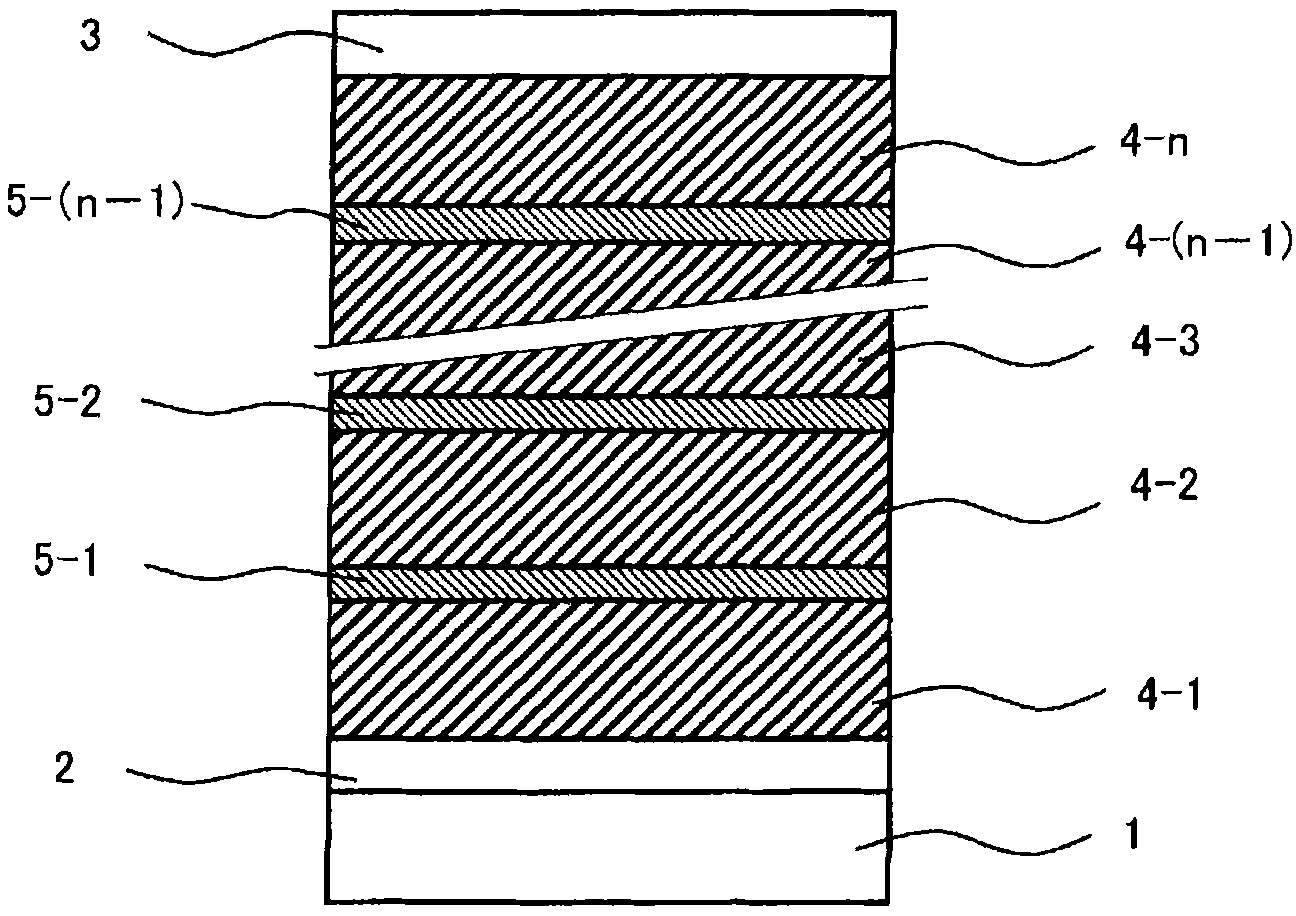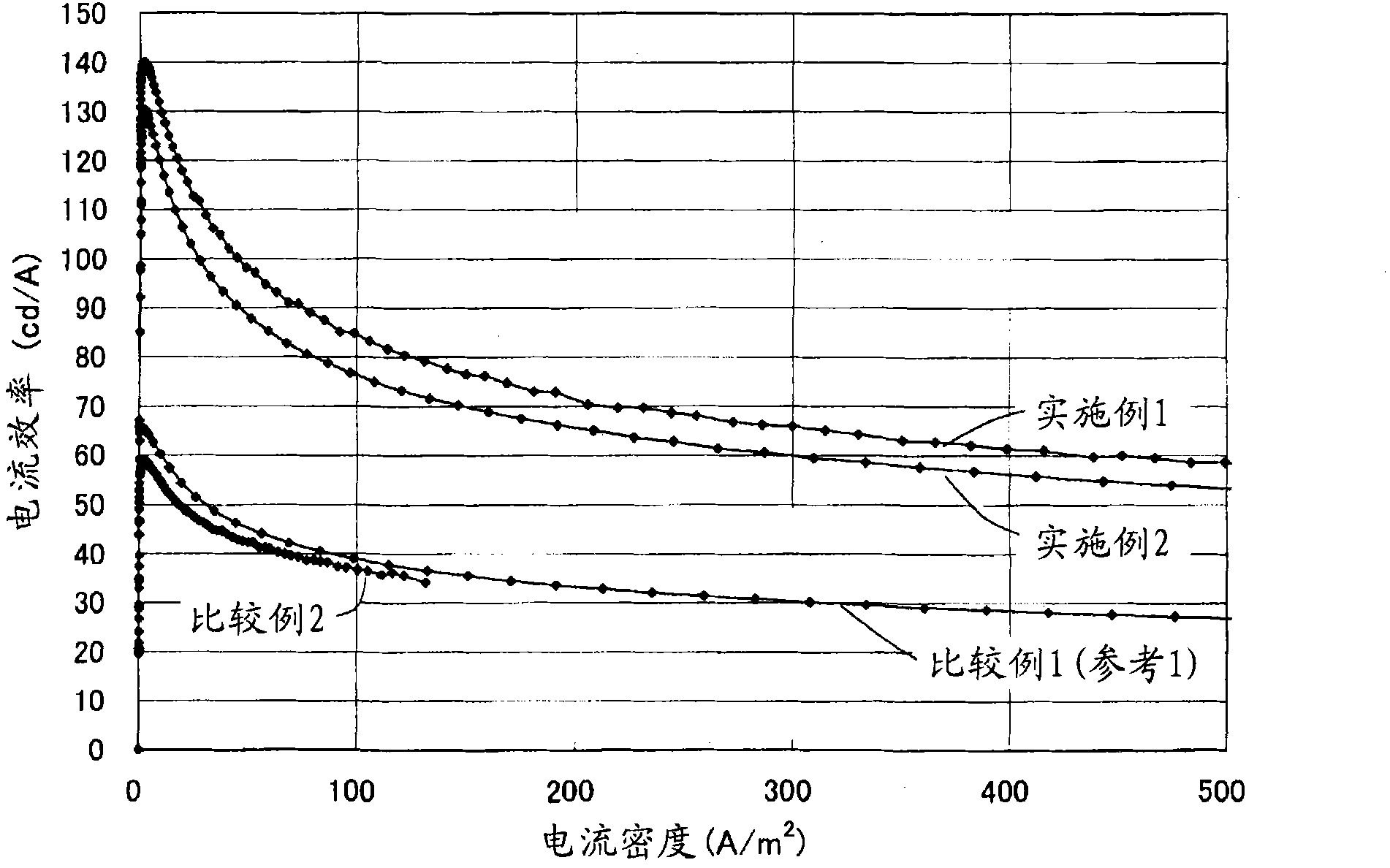Organic electroluminescence element
A kind of electroluminescence, electromechanical technology, applied in the direction of electrical components, electro-solid devices, circuits, etc., can solve the problems of device characteristics obstacles, and achieve the effect of improving resistance, high color reproducibility and good reproducibility
- Summary
- Abstract
- Description
- Claims
- Application Information
AI Technical Summary
Problems solved by technology
Method used
Image
Examples
Embodiment 1
[0090] First, ultrasonic cleaning using pure water and surfactant, running water cleaning using pure water, ultrasonic cleaning using a 1:1 mixed solution of pure water and isopropanol, and boiling cleaning using isopropanol Sequentially, cleaning treatment was performed on the glass substrate on which the patterned transparent conductive film (ITO) was formed with a film thickness of 110 nm. The substrate was slowly lifted from boiling isopropanol, dried in isopropanol vapor, and finally cleaned with ultraviolet ozone.
[0091] The substrate was arranged in a vacuum chamber, and the vacuum was exhausted to 1×10 -6 Torr, each molybdenum boat (boat) filled with vapor deposition materials and a vapor deposition mask for forming a film in a predetermined pattern are set in advance in this vacuum chamber, and the boat is heated by energization to make the vapor deposition The materials were evaporated, and a hole transport layer, a first light-emitting unit, an intermediate layer...
Embodiment 2
[0102] Using the layer structure shown in Example 2 of Table 1, a green phosphorescent element with a two-stage multiphoton structure was produced in the same procedure as in Example 1.
[0103] The intermediate layer is a co-evaporated layer of spiro-DPVBi and molybdenum trioxide, and a layer of only spiro-DPVBi is formed between the spiro-TAD layer, and molybdenum trioxide and spiro-TDA which is an arylamine compound are not in direct contact.
Embodiment 3
[0119] Formation of a spiro-DPVBi monomer film with a thickness of 50nm and MoO 3 Co-evaporated film, and its UV absorption spectrum was measured.
[0120] exist image 3 These UV absorption spectra are shown in .
PUM
 Login to View More
Login to View More Abstract
Description
Claims
Application Information
 Login to View More
Login to View More - Generate Ideas
- Intellectual Property
- Life Sciences
- Materials
- Tech Scout
- Unparalleled Data Quality
- Higher Quality Content
- 60% Fewer Hallucinations
Browse by: Latest US Patents, China's latest patents, Technical Efficacy Thesaurus, Application Domain, Technology Topic, Popular Technical Reports.
© 2025 PatSnap. All rights reserved.Legal|Privacy policy|Modern Slavery Act Transparency Statement|Sitemap|About US| Contact US: help@patsnap.com



